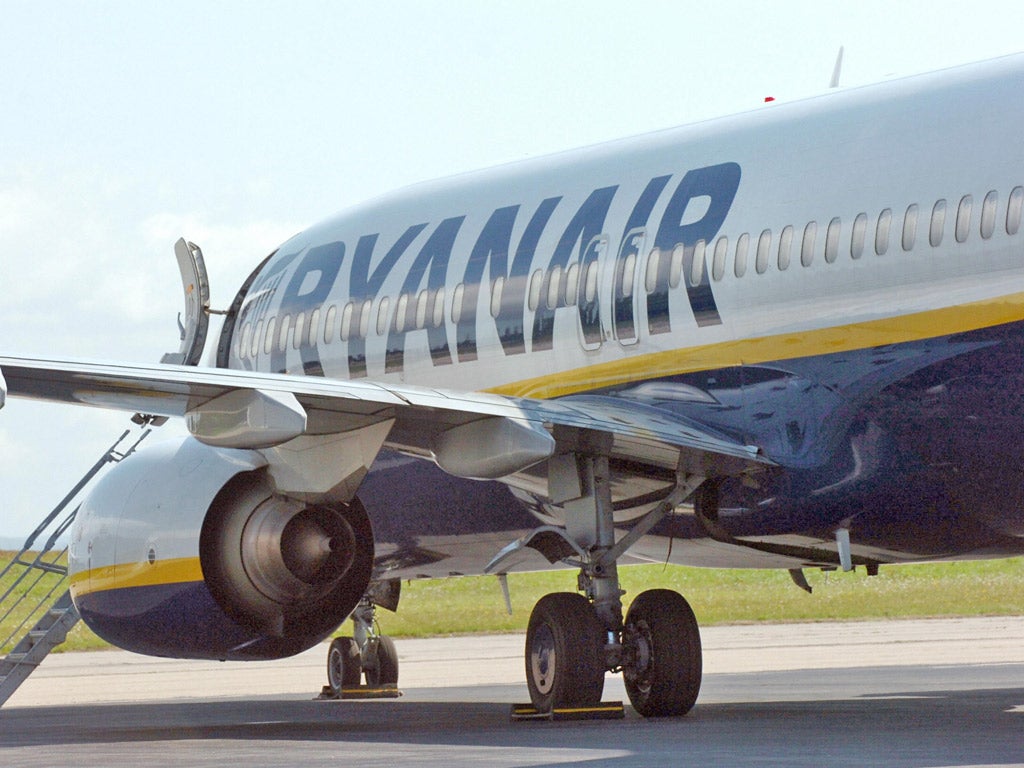Ryanair bags €10.2m penalty in France over breach of labour laws
Court rejects prosecutor’s demand that airline should also be 'fined' €300m

Your support helps us to tell the story
From reproductive rights to climate change to Big Tech, The Independent is on the ground when the story is developing. Whether it's investigating the financials of Elon Musk's pro-Trump PAC or producing our latest documentary, 'The A Word', which shines a light on the American women fighting for reproductive rights, we know how important it is to parse out the facts from the messaging.
At such a critical moment in US history, we need reporters on the ground. Your donation allows us to keep sending journalists to speak to both sides of the story.
The Independent is trusted by Americans across the entire political spectrum. And unlike many other quality news outlets, we choose not to lock Americans out of our reporting and analysis with paywalls. We believe quality journalism should be available to everyone, paid for by those who can afford it.
Your support makes all the difference.The cut-price airline Ryanair was ordered today to pay more than €10m (£8.4m) in fines and penalties for trampling French labour laws.
A court in the south of France rejected the prosecutor’s demand that the airline should also be “fined” four Boeing 737 aircraft – or roughly €300m.
The criminal court in Aix-en-Provence ruled that Ryanair was guilty of employing 127 air-crew at Marseille airport for five years on Irish contracts. The judges ordered the company to pay a fine of €200,000 and €10m in compensation and backdated social and pension contributions to the French state.
Even before the judgement, Ryanair issued a statement forecasting that it would be found guilty. “We will appeal,” the airline said. “European employment and social security law clearly allows mobile workers on Irish-registered aircraft, working for an Irish airline, to pay their taxes and social taxes in Ireland.”
The case is likely to go all the way to the European Court in Luxembourg and could – if Ryanair succeeds – transform labour laws in Europe. The principle of “mobile labour” claimed by the airline could apply to all European air carriers, to large truck companies and other contract workers. The French government argues that this would amount to a legalisation of “social dumping, undermining the foundations of its welfare state.
Paris says that the 127 air-crew employed by Ryanair from its Marseille hub from 2006 to 2010 were clearly based in France and therefore subject to French labour law and relatively high French pay-roll taxes. Ryanair claims that its pilots and cabin staff were operating across national boundaries and not based in any one country.
In a delayed judgement after a hearing in May, the Tribunal Correctionnel in Aix yesterday accepted the arguments of the state prosecutor.
However, the judges drew the line at “seizing” the four Boeing 737 aircraft which the French state claimed should be forfeit because they were “used in committing the offences”.
According to current list prices, a Boeing 737-800 of the kind used by Ryanair is worth about €75m.
When the case was first brought in 2010, Ryanair announced that it was shutting its hub at Marseille-Marignane airport. The airline has, however, continued to use, during the summer months only, a new terminal at the airport built especially for cut-price airlines.
At the trial in May, the state prosecutor said that the 127 Ryanair based in Marseille from 2006 to 2010 “operated in exactly the same conditions as the crews of other airlines based in France.” Marseille-Marignane airport was the “de facto centre of their professional activities”.
They were therefore subject to French labour laws and should have been employed on French contracts. Both the employees and Ryanair should have made payroll contributions to the French state organisations which fund unemployment benefit, health care and pensions.
Ryanair’s lawyers said that, under EU law, the cabin crew could be employed on Irish contracts because they flew between several European countries. They could not be said to be working wholly in France.
Join our commenting forum
Join thought-provoking conversations, follow other Independent readers and see their replies
Comments